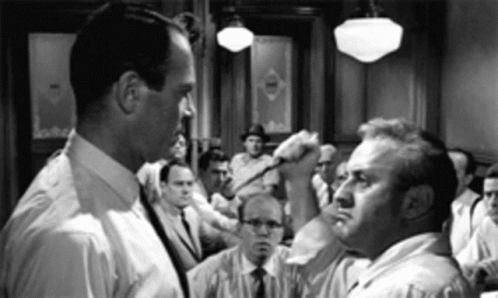To qualify a film as a classic, it must have some basic characteristics that justify its classification among the upper classes, as was the original meaning of the Latin word classicus.
According to wiktionary, the adjective classic means :
So, the film I choose should have these characteristics (if not all, several) and of course have a high or the highest ranking among my favorite films.

source
I thought of several films that met these criteria, such as Citizen Kane, Battleship Potemkin, Gone with the Wind. But my final decision was advocated by a discussion we had on Discord (join here - Discord toy CineTv) after a question @stickupboys asked : "Why would someone remake a classic film?"
So without much more ado, I'll present one of my favorite classic films, as asked by @cinetv for their weekly contest (you can read all about it here)
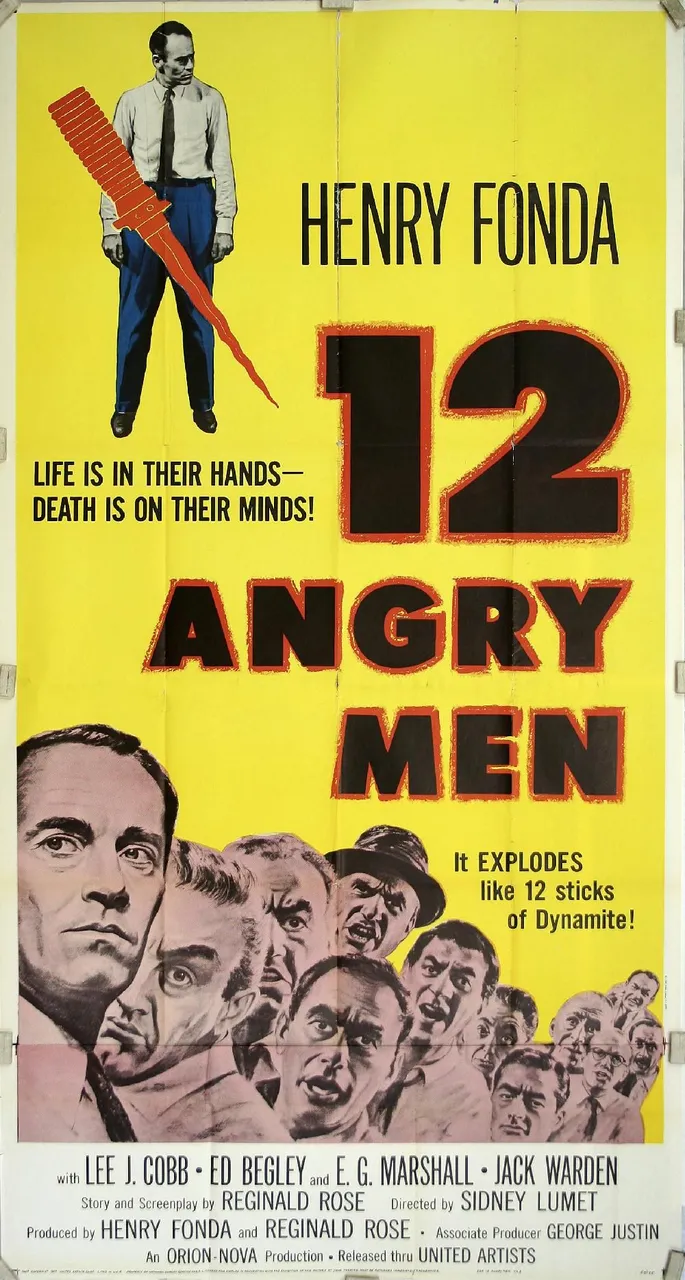
12 Angry Men is a courtroom drama. 12 jurors - all white - gather in a courtroom to decide whether or not to convict a young, 18-year-old Puerto Rican man accused of killing his father.
The play begins with a judge's monotone monologue to the jury, giving them the necessary instructions to make his decision about the young defendant. Without any emotion in his voice, he stresses to the jury that their decision must be unanimous as the death penalty is put as a sword of Damocles for the defendant if found guilty.
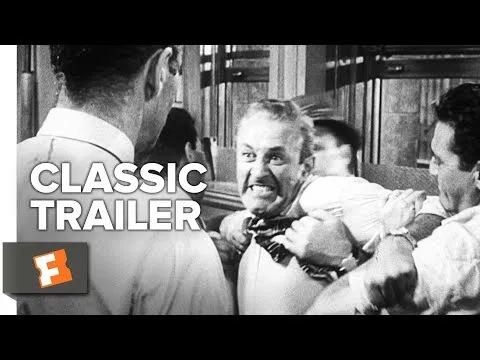
The jury is locked in a courtroom, as defined by law, on the hottest day of the year, with no means of air conditioning, since the only fan in the room does not work. Everyone is in a hurry and wants the verdict to come out quickly, so without any thorough discussion they proceed to vote by hand. The result seems predetermined for the accused, but in the counting, however, a hand isn't raised. When all the others, 11 jurors have raise their hands and voted "Guilty", Juror no.8 (Henry Fonda) votes "Not Guilty". (Remember, the verdict should be unanimous)
And in the discussion above, the crucial question is asked to the juror. 8
"Do you think he is innocent?" His answer is a catalyst for the development of the movie "I do not know".
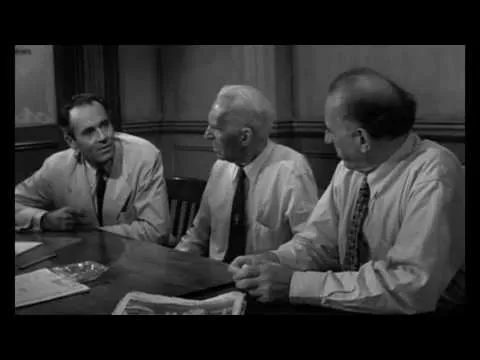
The juror no. 8, despite all the evidence against the young man, a witness who heard the young man threatening his father that he would kill him, another who "saw" the murder through the train carriages, the deadly weapon that was his he believes that the 18-year-old was not given - something very basic: the right to a fair trial.
Everyone from the beginning of the procedure -as conveyed by the jury no.8- is in a hurry to end the procedure. No one tried to give him this right, to be found innocent or guilty "beyond any doubt"
He is an immigrant, he grew up in the ghetto, so he is guilty. He deserves the death penalty.
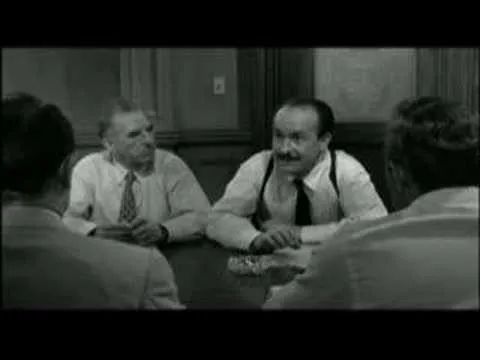
The juror no. 8 does not know if he is innocent or guilty. But what he asks is for the other jurors to reconsider the facts, to think about the decision, not to be left alone in their haste and reluctance to send a new man to the electric chair, so without thinking.
In this claustrophobic space - which was very cleverly placed by Sidney Liumet - the 12 jurors will face themselves. It is much easier to act on the basis of prejudice against the other than to try to break the prejudice itself.
Each juror has his own reasons, social, economic, psychological that pushes him to behave with arrogance and pettiness towards this young poor devil accused.
Liumet introduces us through the discussion that takes place to make the decision, these angry people, angry, not with the jury no.8 that bothers them for a lost cause, but with their personal downfall.
White middle-aged men, who think they know it all, with wounded egos about success that failed to come, about relationships with our own that we could not maintain, about the financial comfort that depends on betting on a game. Even the successful advertiser, a prisoner of his success and his vanity, goes no further. Anger accumulates and the power of life and death given to them makes them vindictive, racist.
But Liumet, with his screenplay by Reginald Rose, gives us a ray of optimism. If we say "no" to the easy solution, if we ask the right questions to ourselves, if we turn our backs on what makes us inhuman, the human attitude can change.
There is a scene where the racist juror, as he can not process the discussion of the others, brings out his racist hatred for a very toxic reason. The other jurors slowly get up from the table and turn their backs on them, leaving him alone, defeated, isolated.

The specific director in the present film was not afraid of the claustrophobic sense of narrow space. The whole film is shot in one room. On the contrary, it intensified it. Using three different lenses to accentuate the actors but also with an excellent cast (starring Henry Fonda), he makes the dialogue itself the protagonist on our screen.
So, the crucial question?
Is this film a classic?
Yes, it is exemplary both for its style and exhibitng timeless quality and excellence, giving us an moral example of how justice should be.
And more important how we should be just, with no prejudices and personal passions.
This film has a lot of remakes, iwth best the one by Nikita Mikhalkov, which reached the Oscars in 2007 . An excellent, if not equal remake
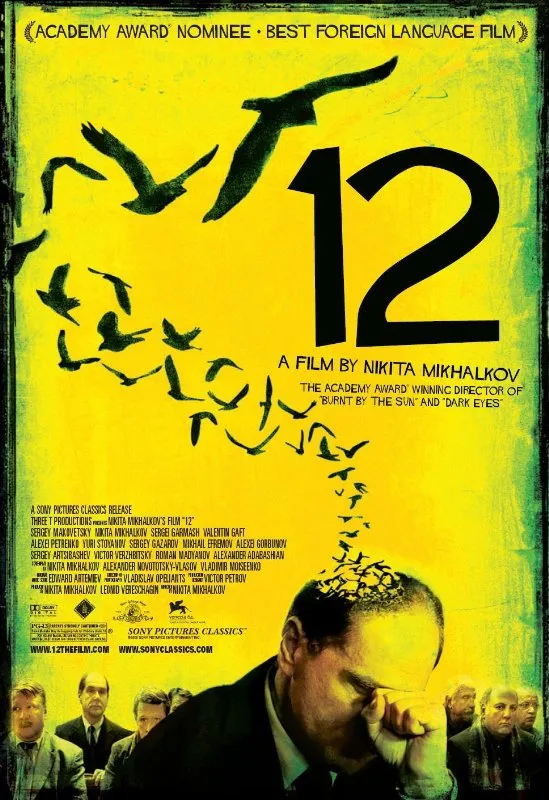
Thank you for reading!
